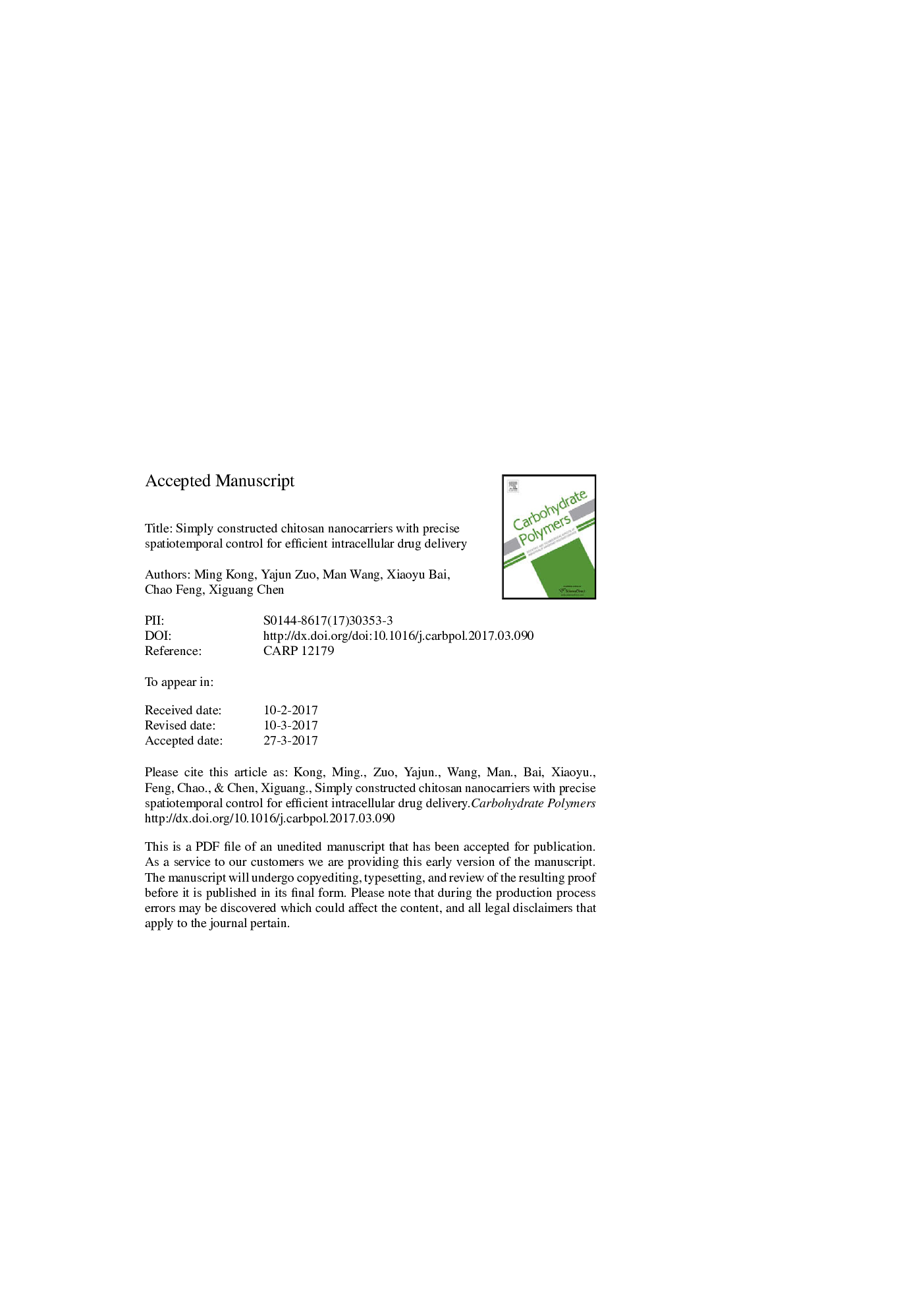| Article ID | Journal | Published Year | Pages | File Type |
|---|---|---|---|---|
| 5157206 | Carbohydrate Polymers | 2017 | 18 Pages |
Abstract
A novel intelligent nanocarrier with pH and redox sensitivities was developed based on Carboxymethyl-chitosan (CMCS) and thioglycolic acid conjugated chitosan (TCS) to provide precise spatiotemporal control for efficient intracellular delivery. Doxorubicin (DOX) loaded nanocarriers (DOX/CMCS-TCS NPs) were simply prepared by ionic gelation and then oxidation crosslink. The nanocarriers exhibited decent stability at pH 7.4 for up to 3 days and underwent aggregation under acidic pH (5.5) due to protonation of the carboxyl groups on CMCS. The TCS skeleton was stable at pH 5.5 (mimic endo/lysosomes) but disintegrated in the presence of 10 mM glutathione (GSH) at pH 7.4 (mimic cytosol). In vitro DOX release from DOX/CMCS-TCS NPs was enhanced at pH 5.5 compared with physiological condition, with 64.2% and 31.6% DOX released in 2 h, respectively. While 85.2% of DOX was released within 2 h as treated with 10 mM GSH, suggesting the release was closely associated with structural disintegration of nanocarriers. The maximum release of DOX was obtained at 10 mM GSH and pH 5.5 with 92.3% of DOX released in 5 h. Confocal laser scanning microscopy observation indicated that DOX/CMCS-TCS NPs efficiently escaped from endo/lysosomes within 1 h incubation with MCF-7 cells and gave the best performance in delivering DOX into nucleus in 2 h. Anticancer activity assay revealed that DOX/CMCS-TCS NPs had comparable or even better inhibition of cell viability at high drug concentrations than free DOX, with the IC50 of 0.6 μg/mL following 48 h incubation. In summary, the simply constructed DOX/CMCS-TCS NPs could not only respond to intracellular delivery temporally, they also achieve rapid release spatially in nucleus, which provide a precise spatiotemporal control of drug delivery for cancer therapy.
Related Topics
Physical Sciences and Engineering
Chemistry
Organic Chemistry
Authors
Ming Kong, Yajun Zuo, Man Wang, Xiaoyu Bai, Chao Feng, Xiguang Chen,
